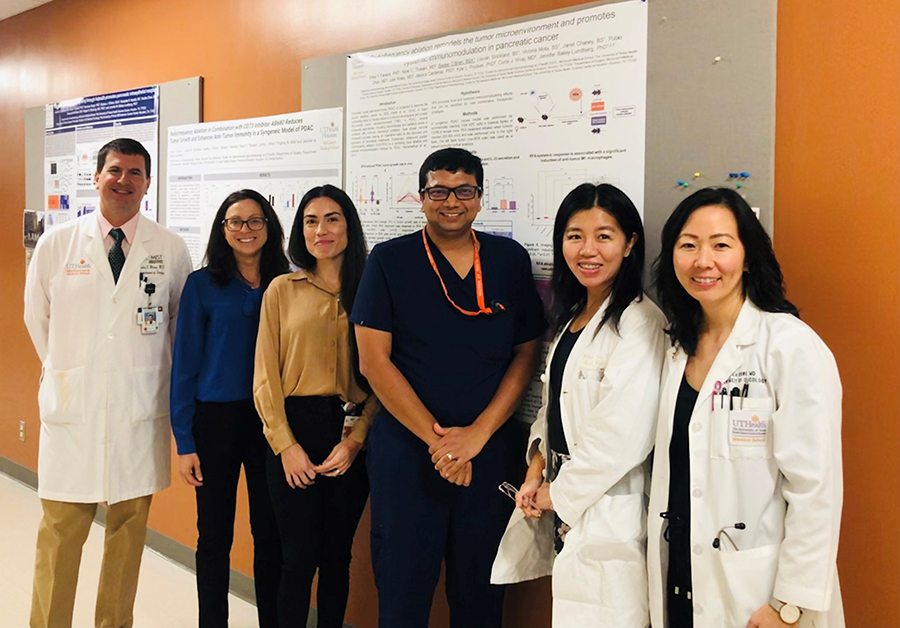Pancreatic cancer research published in Cancer Immunology Research

Recent research on a novel approach to the treatment of pancreatic cancer, from the lab of Jennifer Bailey, PhD, assistant professor in the Department of Anesthesiology, has been published in Cancer Immunology Research.
According to the American Cancer Society, pancreatic cancer affects more than 60,000 people each year and is responsible for about seven percent of all cancer deaths in the United States. Using a novel clinical technique called radiofrequency ablation, the lab hopes their research may potentially lead to a new tool for the treatment of these cancers.
The researchers implanted pancreatic cancer cells into the flanks of preclinical models and monitored the growth of the tumors for several weeks. Once the tumors reached the correct size for treatment, the lab performed radiofrequency ablation, or the use of radio waves to destroy certain tissues, on the tumors. The lab performed the radiofrequency ablation, both with and without immune checkpoint blockade therapy, which are immunotherapy drugs that block proteins from binding.
From the tests, the team found that radiofrequency ablation was successful in reducing tumor progression, promoting an abscopal effect and inducing a strong remodeling of the tumor stroma and immune response. The experiment also showed that neutrophils play a key role in shrinking tumors and that when combined with immune checkpoint blockade inhibition targeting the protein PD-L1, radiofrequency ablation enhances the reduction of tumor growth.
“These results are critical in pancreatic cancer, as current clinical trials have not yet resulted in substantial changes in overall survival,” Bailey said. “Novel therapeutic strategies are needed to reduce pancreatic cancer mortality and metastatic potential. This work provides an opportunity to address how Endoscopic Ultrasound Radiofrequency Ablation (EUS-RFA) may help in fighting pancreatic cancer chemo- and immunotherapeutic resistance by stimulating the immune system and modulating the complex desmoplastic stroma that characterizes this disease.”
The next step in radiofrequency ablation research will test whether multiple rounds of the treatment and/or a combination of multiple therapeutic strategies may enhance anti-tumor response and improve treatment outcomes.
Contributing authors for the paper titled “Radiofrequency ablation remodels the tumor microenvironment and promotes neutrophil-mediated abscopal immunomodulation in pancreatic cancer,” are Erika Faraoni, PhD; Baylee O’Brien; Lincoln Strickland; Baron Osborn; Victoria Mota; Jarod Chaney; Constance Lynn Atkins; Putao Cen, MD, associate professor of internal medicine; Julie Rowe, MD, associate professor of internal medicine; Jessica Cardenas, PhD, assistant professor of surgery; Kyle Poulsen, PhD, assistant professor of anesthesiology; Curtis Wray, MD, professor of surgery; Nirav Thosani, MD, associate professor of internal medicine; and Bailey.